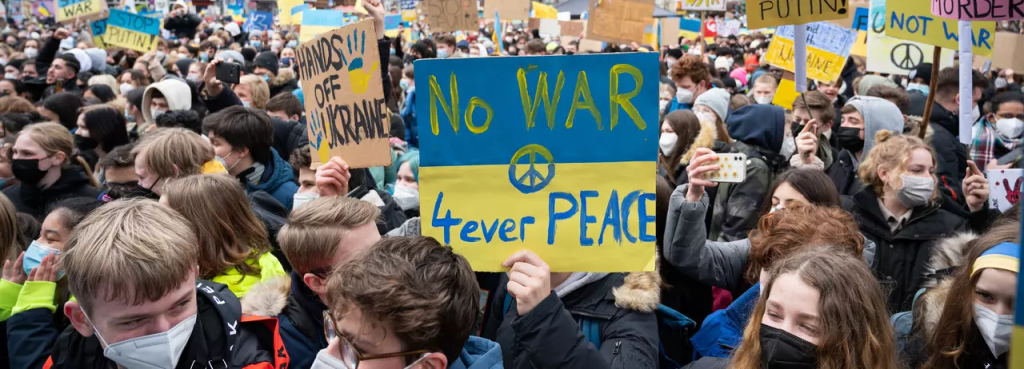
A group of Ukrainian academics has written an open letter to Noam Chomsky critiquing his commentaries on what they categorically define as the “Russian war on Ukraine.” The critique is in fact addressed to Chomsky and “other like-minded intellectuals.” As I have featured many of these intellectuals and their views on my blog, I feel it is important to share this critique.
7 key errors are identified –
#1: Denying Ukraine’s sovereign integrity
#2: Treating Ukraine as an American pawn on a geo-political chessboard
#3. Suggesting that Russia was threatened by NATO
#4. Stating that the U.S. isn’t any better than Russia
#5. Whitewashing Putin’s goals for invading Ukraine
#6. Assuming that Putin is interested in a diplomatic solution
#7. Advocating that yielding to Russian demands is the way to avert the nuclear war
While I recognize the validity of this critique, and the nobility of the national perspective it represents, I would like to suggest that this view might be tempered by the acknowledgment of the enmeshment of Ukraine, by virtue of both history and geography, within the geopolitics of Imperialism, both Russian and American. I suggest that this crisis arose as a result of a disregard or misjudgment, by all responsible parties, of the forces at play. I further suggest, that there can be no solution, no peace, without a realistic reconciliation and containment of the now unfurling forces. The longer the conflict ensues, the more it deepens, and the more irreconcilable the situation becomes.





You must be logged in to post a comment.